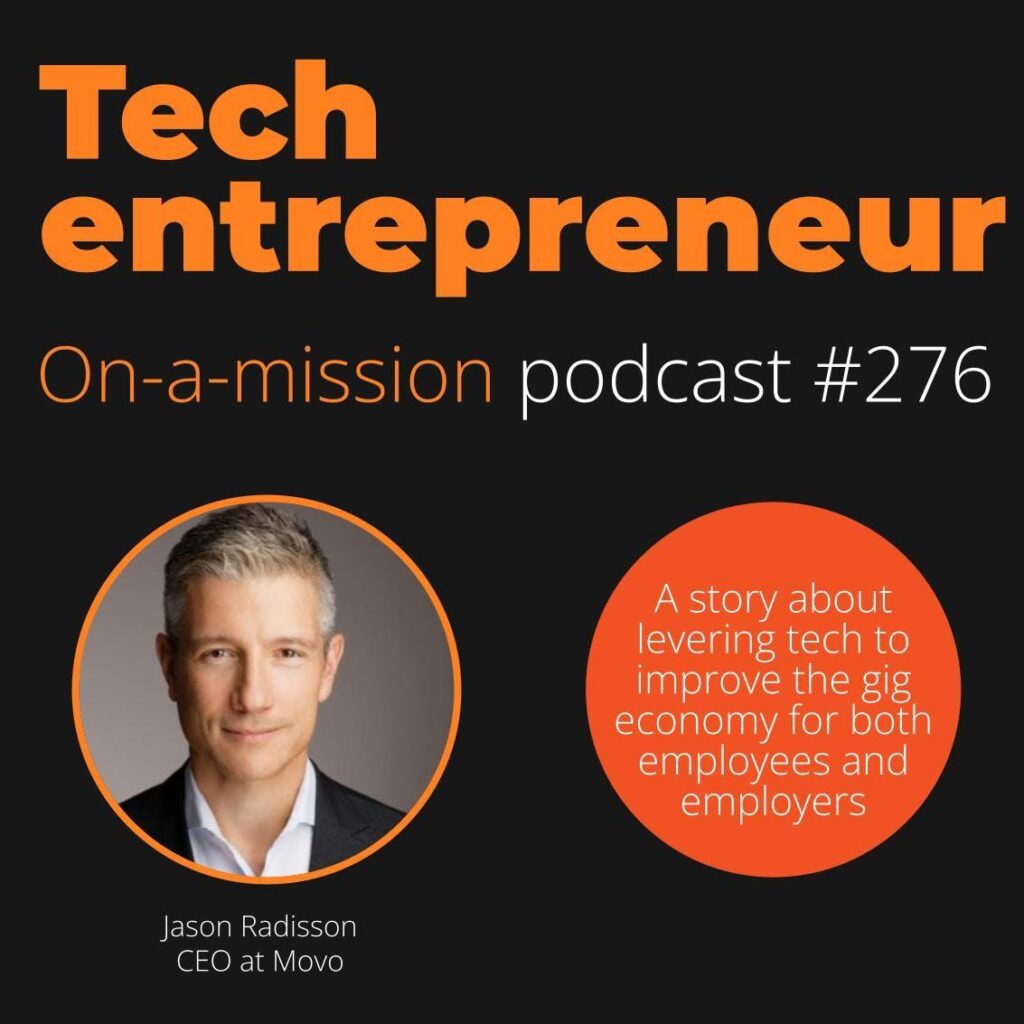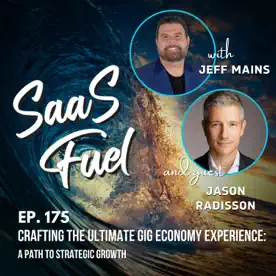This podcast interview focuses on product innovation that has the power to build organizational superpowers. My guest is Jason Radisson, Founder and CEO of Movo.
Jason is a tech entrepreneur on a mission. He inherited his single mother’s work ethic as he worked various blue-collar jobs to fund his education. He started his career at McKinsey & Company. He then became an entrepreneur and joined the early days of Uber, where he launched and grew cities in the western US as a Regional General Manager. Fast forward to today, and Jason has built multiple tech unicorns, including rideshare giant 99. His latest venture, Sh1ft helps remove friction from employment across frontline labor industries such as manufacturing and healthcare.
He is passionate about using technology to empower and uplift the frontline workforce, which he believes is the backbone of the economy and society.
That became the trigger to found Movo in early 2019 to address the challenges and opportunities of this segment, which is often overlooked and underserved by traditional HR solutions.
Their mission: To improve the gig economy by making it as good for employees as it has been for employers.
And this inspired me, and hence I invited Jason to my podcast. We explore what’s broken in the way the market has access to talent. Jason puts his finger on the opportunity HRTech vendors have failed to address and shares his vision of how to solve this global problem by taking a fresh approach. He shares his big lessons learned on how and when to scale the business. And last but not least, the tells a story about how they created remarkable differentiation when the market needed it most.
Here’s one of his quotes:
We can replace Workday for massive employers. That’s what we’re gunning for.
Just our philosophy towards sharing, It’s been almost an afterthought by the HR tech industry to have your workforce talking to each other and sharing with other people. We think people should share, and you should be able to follow people who are in your profession in other countries, and you should be able to have casual mentoring and casual interactions outside of work. And it’s kind of the antithesis of where traditionally, HR software has been.



